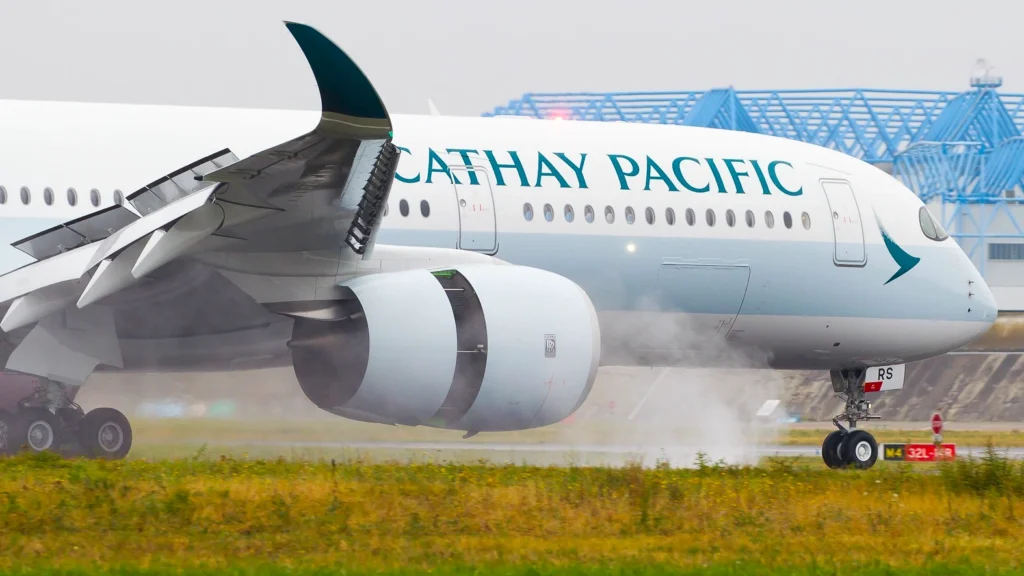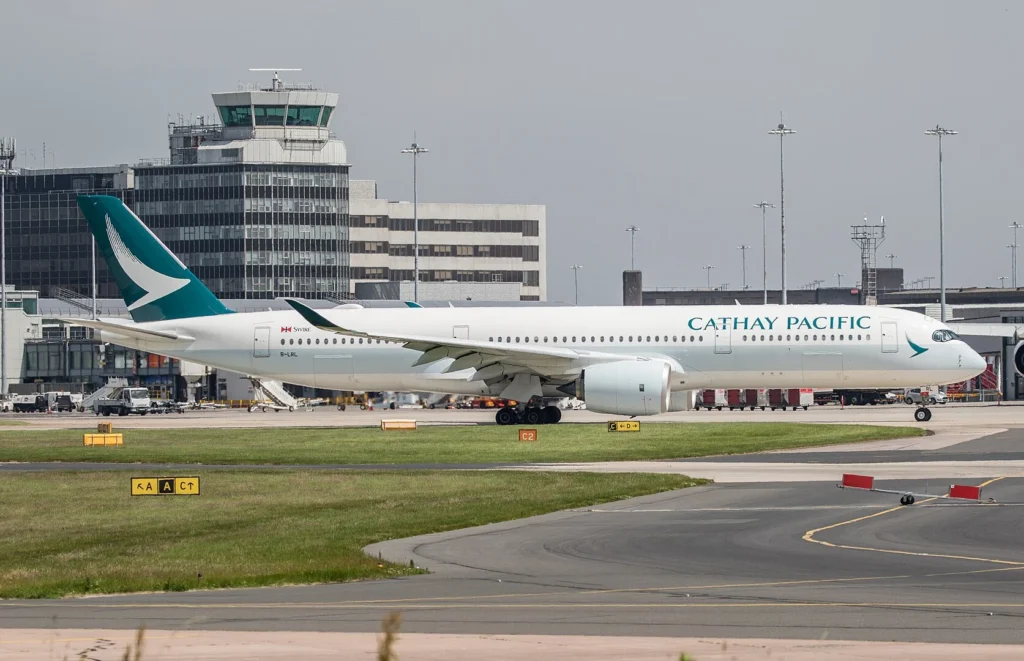
HONG KONG- A Cathay Pacific (CX) first-class award ticket was unexpectedly canceled just days before departure, leaving the passenger, Alan’s mother, without a reservation at Hong Kong International Airport (HKG).
The ticket, booked via Cathay Pacific’s own loyalty program, was invalidated after a fraudulent WeChat call impersonating a family member.
The passenger exclusively told OMAAT was forced to purchase a last-minute economy seat for $1,300 after Cathay Pacific staff informed her that her reservation had been voided. Despite miles being partially refunded, the experience raised significant concerns about airline account security and customer protection.
 Photo: Clément Alloing
Photo: Clément AlloingCathay Pacific Ticket Fraud
Alan redeemed miles through Cathay Pacific’s frequent flyer program for his mother to fly in first class. However, when she arrived at Hong Kong International Airport for her flight, agents told her that no reservation existed.
This shocking revelation unfolded just days after an unknown individual, posing as her husband, canceled the flight by contacting Cathay Pacific through WeChat.
According to Alan, no one in his family made or authorized the cancellation. The airline’s system showed a miles refund, minus a cancellation fee.
Left with no viable option, his mother bought a same-day economy class ticket, drastically downgrading her travel experience and incurring an unplanned expense.
Despite reporting the incident and filing a police report in Hong Kong, Cathay Pacific has thus far declined to accept liability.
The airline stated that further action would require an official investigation, placing the burden on the customer to resolve a case of fraud that appears to be enabled by weak verification protocols.
This incident highlights a systemic vulnerability in airline customer service protocols. Cathay Pacific allegedly accepted a cancellation request over a WeChat call from someone who merely claimed to be a relative of the traveler. There was no two-factor authentication, PIN verification, or voice identity check required, despite the high value of a first-class award ticket.
In an era where digital fraud and loyalty account hacking are on the rise, this situation illustrates how easily bad actors can exploit weak security measures. Airlines must require passengers to provide secure credentials, such as a one-time password or PIN, before allowing modifications to award bookings.
Alan believes the airline should trace the origin of the call and determine who accessed the reservation. He argues that the responsibility lies with Cathay Pacific to investigate and protect its customers from unauthorized changes.
 Photo: Clément Alloing
Photo: Clément AlloingGrowing Risks in Airline Loyalty Programs
As loyalty programs become more valuable, they are increasingly targeted by fraudsters. Account takeovers, phishing, and social engineering attacks have become common. In this case, Alan suspects the cancellation may have been intended to free up a premium seat for another booking.
Many travelers remain unaware of how easily someone with minimal information, such as a confirmation code, can manipulate bookings. This is especially problematic when airlines allow customer service requests via unsecured channels like messaging apps or phone calls without authentication.
Consumers must remain vigilant by monitoring reservations, securing loyalty accounts with strong passwords, and checking itineraries in the days before travel. While this may not prevent every fraudulent attempt, it reduces the risk of last-minute surprises at check-in.
 Photo: By Transport Pixels from England – Cathay Pacific Airbus A350, CC BY 2.0, https://commons.wikimedia.org/w/index.php?curid=60060716
Photo: By Transport Pixels from England – Cathay Pacific Airbus A350, CC BY 2.0, https://commons.wikimedia.org/w/index.php?curid=60060716What Should Airlines Do Now?
While legal liability remains complex, there is a clear ethical obligation for airlines to strengthen customer protections. Cathay Pacific should investigate the fraudulent cancellation, disclose whether someone else booked the now-vacant seat, and identify any breach of internal access controls.
The lack of transparency only deepens customer frustration and erodes trust. Even if no intentional wrongdoing occurred on the airline’s part, an internal review and policy revision could help prevent repeat incidents.
Cathay Pacific did eventually restore the miles cancellation fee, but the damage—both financially and emotionally—was already done. The broader travel industry must view this as a wake-up call for implementing more robust fraud prevention systems.
Stay tuned with us. Further, follow us on social media for the latest updates.
Join us on Telegram Group for the Latest Aviation Updates. Subsequently, follow us on Google News
Cathay Pacific Australian Passenger Deported from New York, US
The post Cathay Pacific First Class Ticket Canceled via Online Fraud appeared first on Aviation A2Z.


















